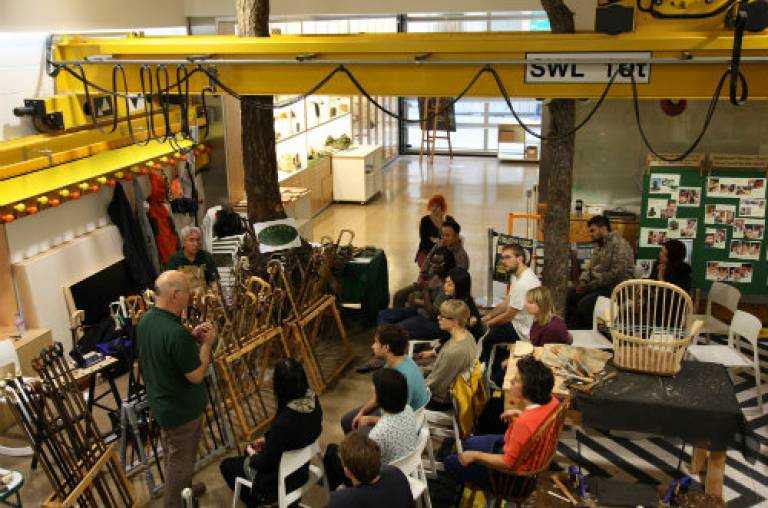Five suggestions for a successful learning environment
24 February 2016

Dr Brent Carnell (UCL Centre for Advancing Learning and Teaching) has carried out an initial study on how university rooms and lecture theatres can make practical learning easier.
Intellectually curious students learn best when they experience first-hand the challenges and achievements of conducting research, but also get more from their studies when they make connections between their degree programme, subjects outside it and the world beyond UCL. This is our philosophy of a research-based education. Dr Brent Carnell looked at how the physical environment can best support this.
He conducted lengthy interviews with more than 15 UCL colleagues and students. Many of the interviewees expressed real and perceived challenges on how research-based education will play out in UCL’s dense urban environment.
Here are five key themes that emerge from his research:
We will need spaces to make connections and be part of a community
Having familiar social spaces where staff and students can collaborate in an friendly environment is important. Inviting areas designed to encourage informal discussions are a useful way to develop connections with one another outside of the classroom.
Example at UCL: BASc Common Room
We will need spaces for group learning and collaboration
Informal group learning spaces, available for students to book and use, will be important to enable students and staff to learn from one another. Computer labs, learning labs, and breakout spaces, equipped with the right facilities, are ideal for collaborative working.
Example at UCL: the Institute of Making
We will need spaces that are flexible
Students need access to spaces which allow for flexibility and adaptability, for examples lecture theatres that enable small group discussions.
Example at UCL: a recently-run furniture pilot scheme
We will need more exhibition spaces
Specifically-designed permanent exhibition spaces are valuable for students to show their work to a wider, often public audience. Similarly these spaces could be used to exhibit staff research.
Example at UCL: spaces being created within 22 Gordon St (formerly Wates House)
We need to think beyond spaces at UCL and take advantage of our London location
While the physical university is important, so too is the space beyond it. It makes sense that students have the opportunity to use London as a laboratory. Learning through research with the community beyond UCL will offer students invaluable experience and may even inspire creative assignments.
Example at UCL: first-year History module 'Making history’
Other suggestions include giving staff and students the time to understand how new spaces might work for them; and train them in how to employ appropriate teaching techniques within different spaces.
If you'd like to get in touch with Dr Carnell about his research, email b.carnell@ucl.ac.uk. He will also be speaking at the Next Generation Learning Space conference 2016.
 Close
Close

